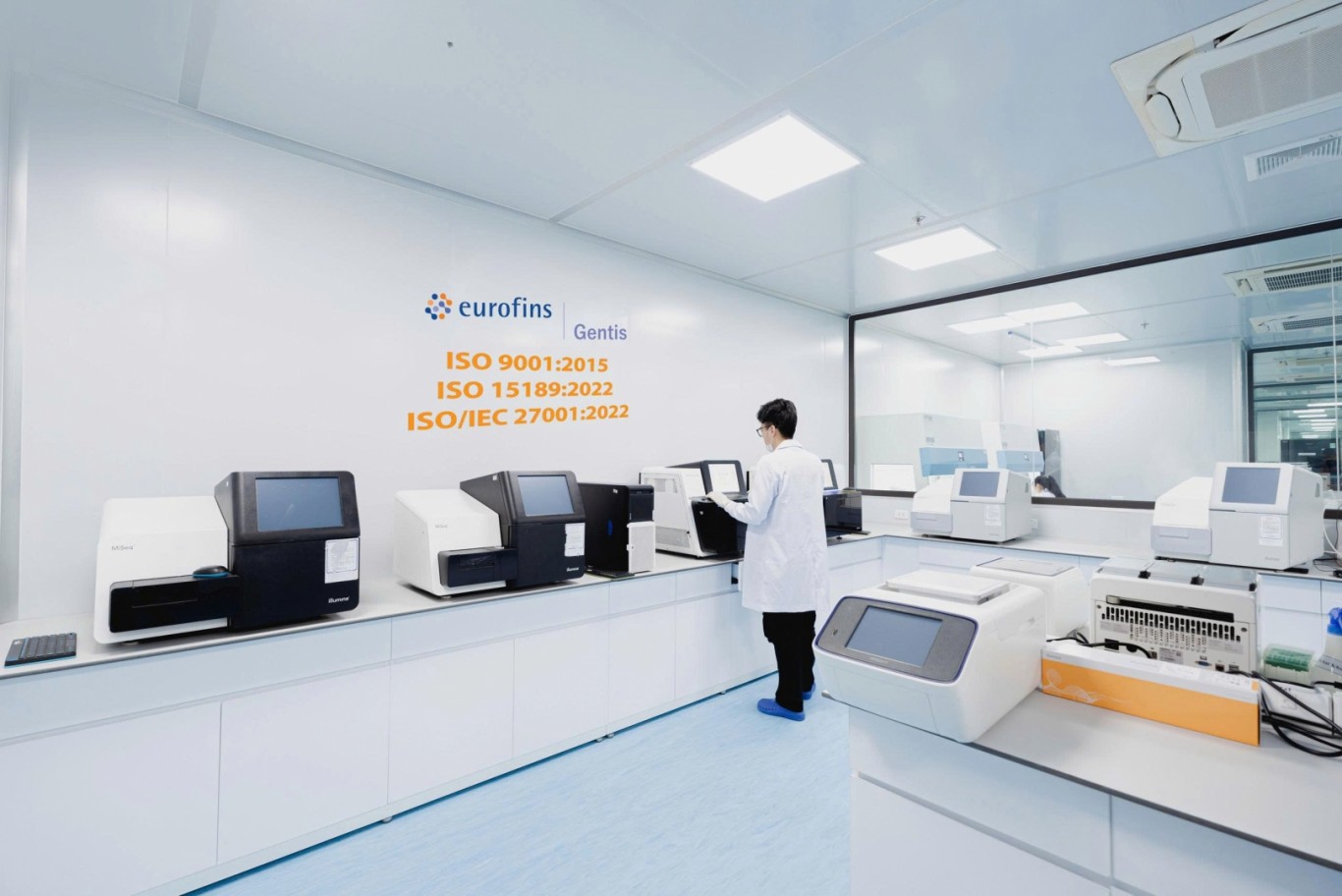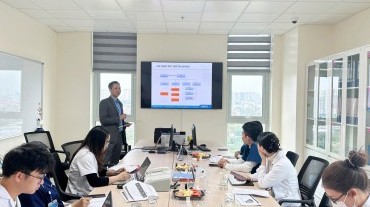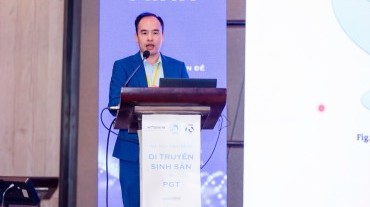Thalassemia – A Recessive Genetic Disorder to Be Aware Of
Thalassemia (also known as congenital hemolysis) is the most common single-gene genetic disorder worldwide. According to reports from the Thalassemia Federation and WHO in 2008, approximately 7% of the global population carries the disease gene. For every 100 couples, about 1.1 couples are at risk of having a child with the disease or carrying the Thalassemia gene.
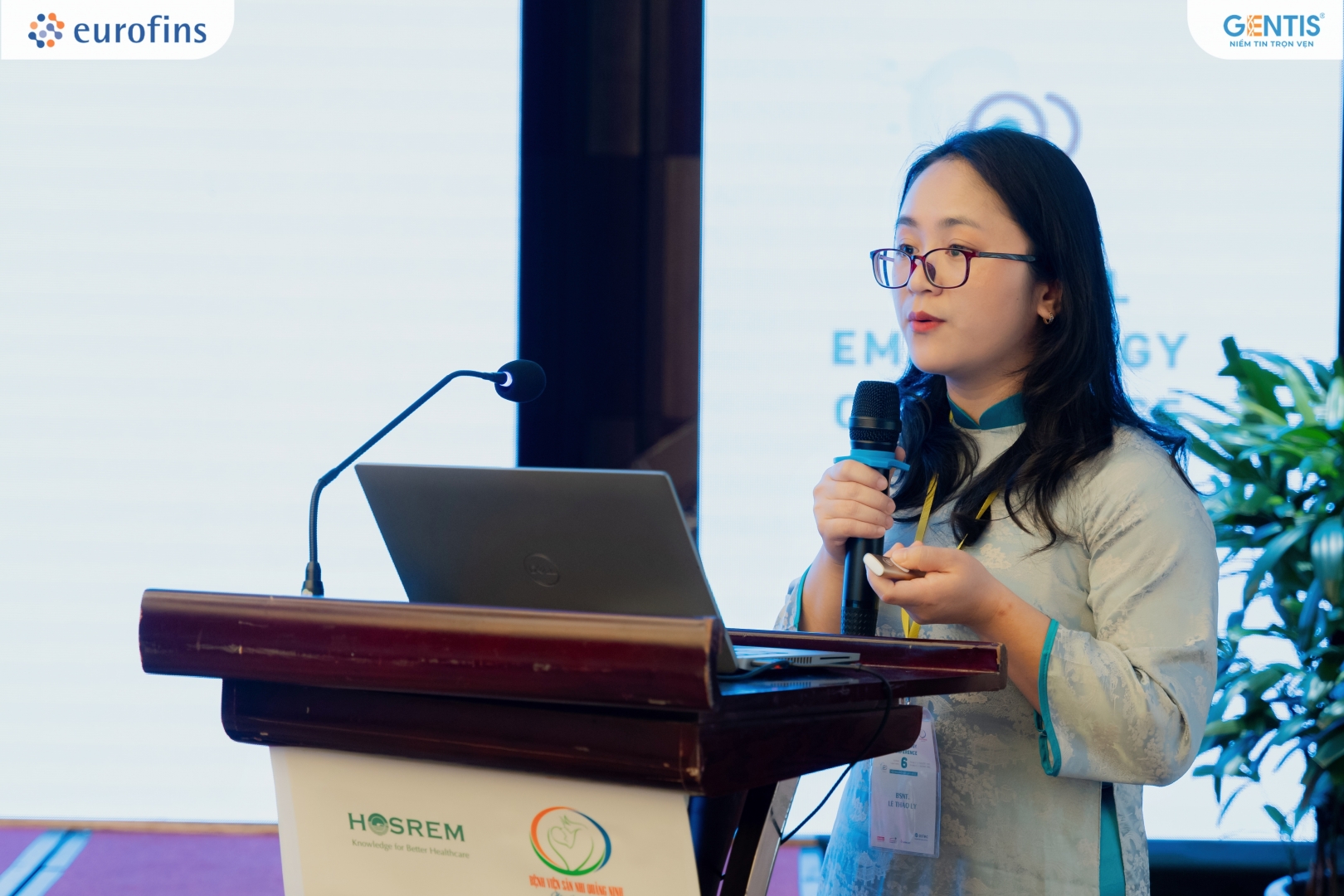 Dr. Le Thao Ly (Quang Ninh Obstetrics and Pediatrics Hospital) reported at the 2025 Clinical Embryology Conference.
Dr. Le Thao Ly (Quang Ninh Obstetrics and Pediatrics Hospital) reported at the 2025 Clinical Embryology Conference.
In Vietnam, Thalassemia is the leading cause of severe anemia and hemolysis in children. According to the Vietnam Congenital Hemolysis Association, there are about 12 million carriers of the disease gene, and an estimated 20,000 patients need treatment each year.
Couples who carry the Thalassemia gene have a 50% chance of having a child who carries the gene and a 25% chance of having a child with the disease if they conceive naturally. Therefore, couples planning for pregnancy, especially those with a family history of Thalassemia, should take preventive measures for the future generation by undergoing screening for early detection and appropriate preventive actions using PGT-M.
PGT-M Testing Helps Thalassemia-Carrying Parents Have Healthy Children
According to Dr. Le Thao Ly (Quang Ninh Obstetrics and Pediatrics Hospital), who presented at the 6th CEC Conference, PGT-M (Preimplantation Genetic Testing for Monogenic Gene Disorders) was first reported in 1990 and was originally used to diagnose genetic disorders linked to the X chromosome. With this technique, we can examine the genetic makeup of embryos at a very early stage, identifying specific abnormal gene segments inherited from the parents.
As a result, embryos with the disease-causing gene are eliminated before being transferred to the mother's uterus. The effectiveness of this method has been proven to help reduce the incidence of children born with the disease and minimize the need for pregnancy termination.
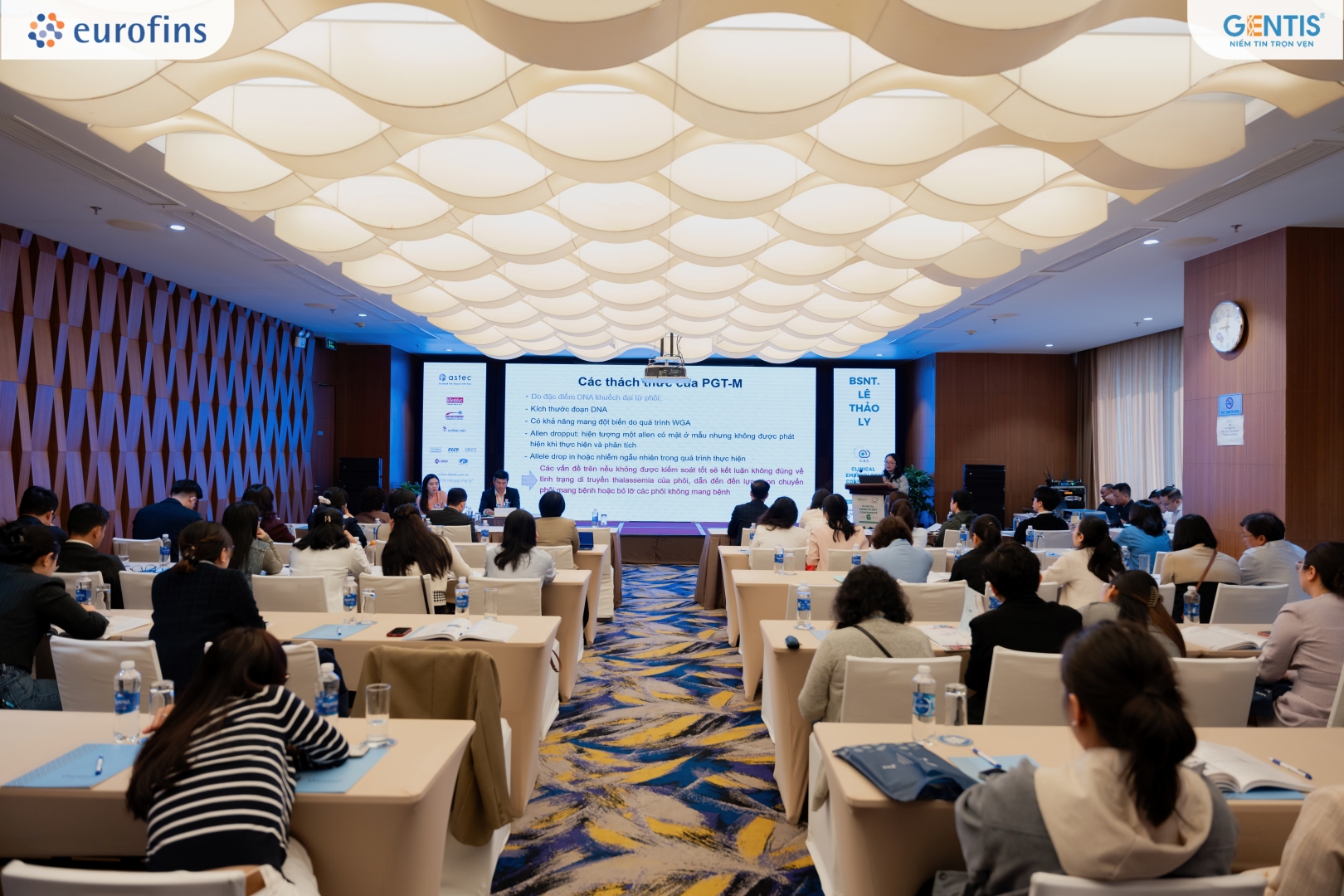 PGT-M plays a crucial role in reproductive medicine but still presents some challenges.
PGT-M plays a crucial role in reproductive medicine but still presents some challenges.
PGT-M is a test that identifies single-gene abnormalities and mutations related to genetic syndromes such as Thalassemia, Spinal Muscular Atrophy (SMA), Hemophilia, Rett Syndrome, Polycystic Kidney Disease, and others. It is recommended for couples carrying disease-causing gene mutations who are at high risk of having a child with a monogenic genetic disorder.
PGT-M is a highly accurate technique, requiring advanced technology such as SNP (Single Nucleotide Polymorphism) analysis, STR (Short Tandem Repeat) analysis, qPCR (real-time PCR), MLPA (Multiplex Ligation-dependent Probe Amplification), or NGS (Next-Generation Sequencing), depending on the specific monogenic disorder to be analyzed. The goal is to detect gene mutations that the parents carry and can pass on to their child.
To perform PGT-M, couples typically need reproductive assistance through in vitro fertilization (IVF). Embryos created through IVF are cultured until day 5. Embryos at this stage (blastocysts) are biopsied, and 5-7 cells are extracted from the part of the embryo that will develop into the placenta. These cell samples undergo special tests to identify the disease-causing genes.
This test enables doctors to check the genetic makeup of the embryos at an early stage, allowing for the identification and removal of embryos carrying the parents' genetic disease. Only healthy embryos are transferred to the mother's uterus, increasing the chances of pregnancy and resulting in healthy children who do not carry genetic mutations for future generations.
To date, in addition to screening for Thalassemia PGT-M, GENTIS has also developed PGT-M techniques for over 100 rare genetic disorders, including Duchenne Muscular Dystrophy, Spinal Muscular Atrophy, Hemophilia, Congenital Adrenal Hyperplasia, and more.
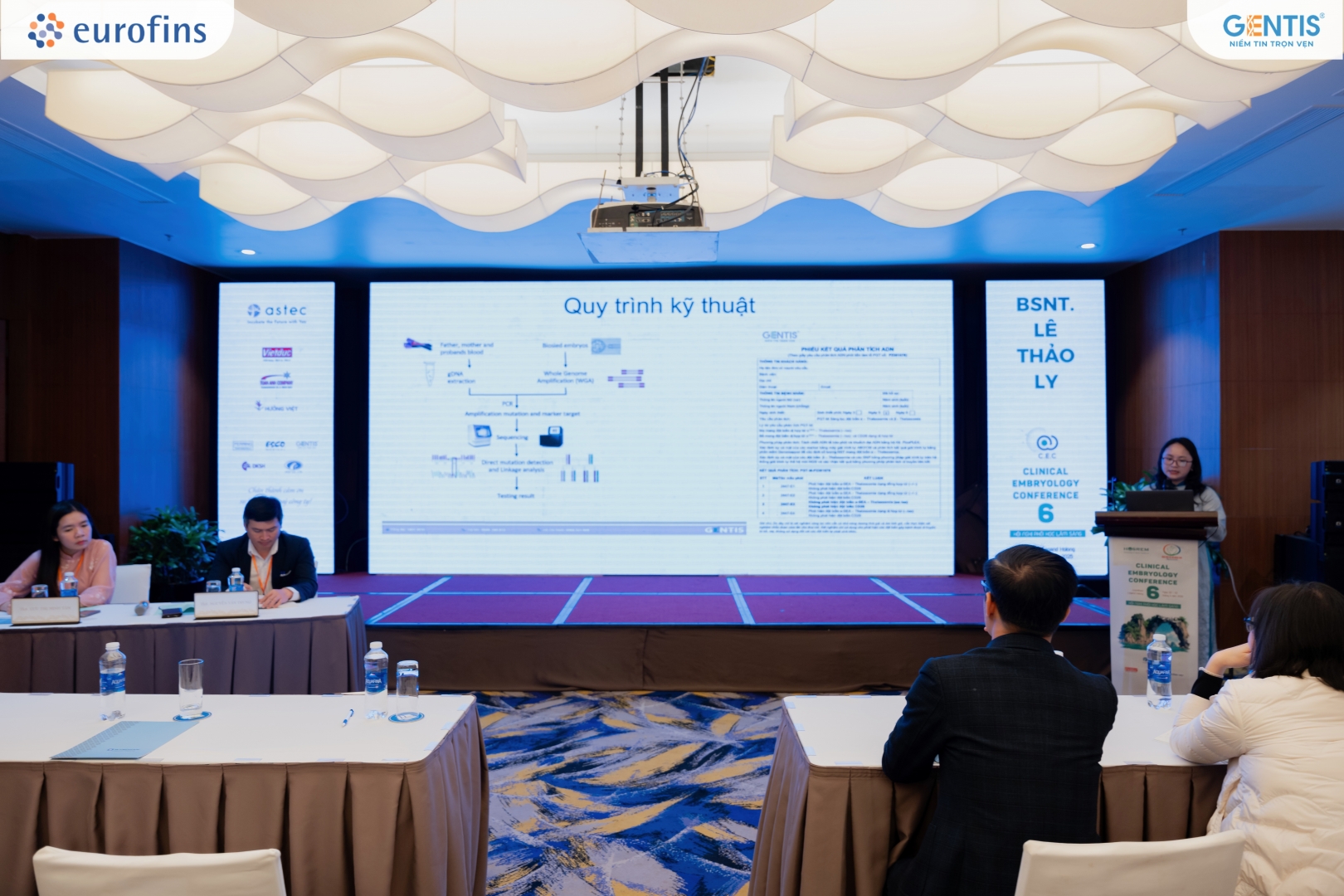 PGT-M Testing at GENTIS is Performed Using a Rigorous, Professional Process
PGT-M Testing at GENTIS is Performed Using a Rigorous, Professional Process
Along with the application of new technologies and advanced machinery systems (Veriseq PGS technology, Illumina NGS DNA sequencing system from the USA, and SNP, STR analysis methods), PGT-M testing at GENTIS is carried out in a strict, professional manner to ensure highly reliable results. Combining PGT-M screening for monogenic genetic disorders with PGT-A/SR testing before PGT-M helps provide a comprehensive assessment of embryo quality, improving the success rate of assisted reproductive methods.

